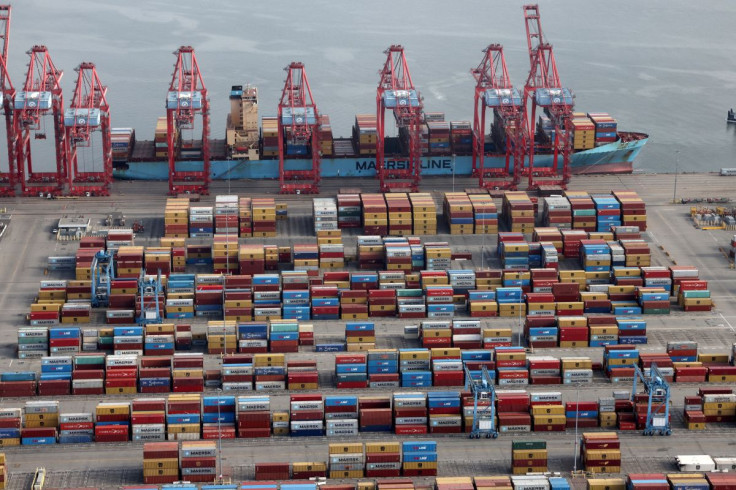California Truckers Protest 'Gig Worker' Law At Busiest U.S. Seaport

Independent truckers who ferry goods to and from the nation's busiest seaport complex in Southern California on Wednesday stopped work to protest a state law that makes it harder for businesses to treat workers as independent contractors rather than employees.
Their actions come at a critical time for California ports involved in high-stakes West Coast labor talks. Retailers, food producers and other shippers are sweating those often-contentious negotiations because any breakdown could upend the fragile U.S. supply chain and stoke soaring inflation. Trucking disruptions threaten to add to that anxiety.
The U.S. Supreme Court last month declined to take up a challenge to California's law known as AB5. Backers say AB5 helps clamp down on labor abuses by companies that use freelance or other so-called "gig" workers. The trucking industry warns that it would devastate the nation's fragile supply chain.
"It is creating enormous uncertainty for truckers who are trying to figure out how they can keep working," said the Owner-Operator Independent Drivers Association (OOIDA), which represents California's estimated 70,000 independent truckers.
The California Trucking Association (CTA) says AB5 is blocked by federal regulations governing the industry. It asked the U.S. Supreme Court to review a 9th U.S. Circuit Court of Appeals ruling that found that AB5 it is not preempted by the Federal Aviation Administration Authorization Act (FAAAA). That law, which also applies to the trucking industry, prohibits states from regulating prices, routes and services offered by trucking companies.
Trucking company owner Gordy Reimer said he normally has 50 to 75 independent drivers working at Los Angeles' ports. All of them declined loads on Wednesday to participate in the protests on port properties and nearby roadways, said Reimer, who counted his immediate losses at around $50,000.
The truckers caught the eye of one key figure - President Joe Biden's new point person on ports and supply chains, who was touring the complex on Wednesday.
"We need to retain drivers because they're critical to our economy," Stephen Lyons, port and supply chain envoy to the White House's Supply Chain Disruptions Task Force, said after witnessing the protests.
© Copyright Thomson Reuters {{Year}}. All rights reserved.





















